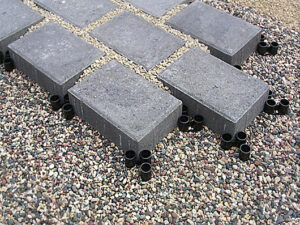Are Paving Stones Permeable?
Paving Stones Permeable
If you live in an area with a high water table, you may wonder are paving stones permeable. Having permeable paving on your driveway or patio could help to reduce the amount of water runoff into storm sewers and lakes. A permeable paving slab is made up of a special concrete mixture that allows water to flow through and drain. It is a popular solution for low traffic driveways and walkways. Permeable paving can also be used for rain gardens.
Paving stones that are made from porous concrete, granite, marble, or quartz are ideal for permeable Paving. This type of paving is a more durable option than poured concrete. In addition, it is much more resistant to the heat island effect, which affects city environments. These pavers are often referred to as “green paving”.

The most common type of permeable paving is interlocking pavers. This type of paving is generally manufactured and has a number of benefits. Unlike traditional paving, interlocking pavers are less susceptible to extreme temperature fluctuations. Additionally, they are able to divert water to a reservoir, which can then be used for waste removal and watering plants.
Are Paving Stones Permeable?
Another type of permeable paving is segmental permeable pavement. This system uses smaller-sized aggregate for joints, creating a natural gap between the stones. Once the water reaches the joint, it flows through, filtering out pollutants and suspended solids.
When installing permeable paving, you should always consider the overall design of the project. This can include the depth of the subbase layer. If the subbase is too shallow, the stones may settle. For this reason, it is best to use a higher-quality material and make sure that the base is properly prepared.
In order to ensure that your permeable paving is installed correctly, you should hire an experienced contractor or company. Make sure that they provide a permeable base and that any drainage is properly connected. Otherwise, your paving will end up uneven or settling. There is no need to worry, however, because it will be easy to repair or remove the damaged portions.
Depending on the amount of rainfall you receive, you may have to install more sand or other materials in your joints. Adding more sand can stop the filtration process and will prevent water from flowing through. You can also fill voids with non-permeable material.
Permeable paving is a viable alternative to traditional paving, but it comes with its own set of drawbacks. While it does help to keep water in local microecosystems, it is not a permanent solution. And in some areas, you may have to replace permeable paving once it has worn down.
Some cities and towns have set limits on the impervious surfaces they allow. In Montgomery County, for example, you can get a rebate if you install permeable paving. However, you may need to check with your local Department of Environment before you begin.
When purchasing permeable paving, be sure to choose a product that is guaranteed for at least 10 years. Depending on the type of product, this guarantee may come with an extra charge.